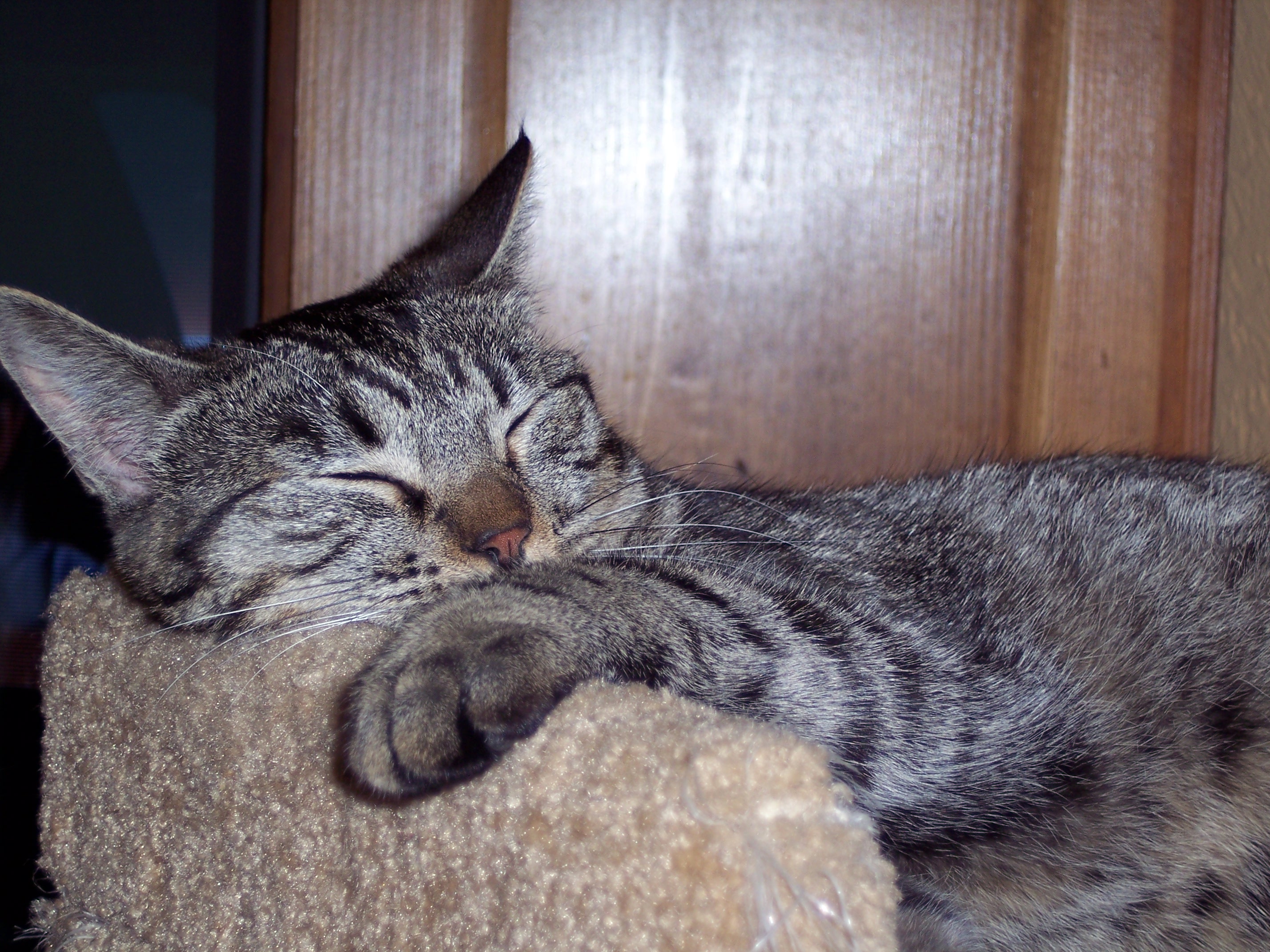Betcha didn’t know! June is National Adopt-A-Cat Month!
Did I hear a ‘so what?’ I know. Many people are allergic to cats. Many people prefer dogs. Many people prefer fish, rodents, or reptiles. And that’s okay. Because any pet will teach a child responsibility, compassion, how to handle death, and more. Pets also bring comfort, amusement, and can present a calming influence. I know. Every day I see the benefits of having pets – with both of my boys.
Over the years, we’ve been the proud humans of five cats, a dog, a rat, a mouse, and several fish. Currently, we share our abode with three wonderful cats, two adopted from local shelters and one from a neighbor. There’s Midnight, our sleek black male shorthair, Sheba, our pretty black-and-tan tabby (see her here!), and our medium-haired little gray girl, which Nigel named Winter (see below). The boys love all of the cats, but Winter’s the newest, so she gets the most attention. Nigel will hold her and walk through the house, saying to anyone in earshot, “Look at her! Just look at her! Look at how cute she is! It’s like she jumped straight out of a painting.” Then he snuggles his face into hers and says, “If your parents could meet you now, they’d be so proud of you!” Aidan loves her just as much. He bursts through the front door when he gets home from school every day and says, “Where’s Winter? Where’s that little princess? I have to pet her!” And then he squeals when he finds her. They are in love with this cat.
And since she’s not their first cat, they’ve learned about death from the ones that came before her. We had one hit by a car a few years ago, and as sad as it was for the boys (and me), our cat’s death helped prepare them emotionally for their great-grandfather’s death several months later. And when Nigel’s very own pet mouse, that he kept in his room and was responsible for entirely, died last year, he handled it with more maturity than I would ever have expected.
Oh, yes, they grumble and complain about having to empty the litter box. They “forget” to do it. But then they see what happens when they “forget,” and they realize that their pets are dependent upon them for their care. And they learn about treating their pets with kindness and respect. Sometimes, this carries over into their dealings with people. At least, that’s the idea.
It’s also worth noting that people on the spectrum can often relate to animals easier than they can to people, such as Temple Grandin with cows or John Elder Robison and dogs. I definitely see this with Nigel. He was playing with Winter a few days ago, pulling a string through the house and laughing as she chased it. After some time, he put the string away and went to the kitchen to get a snack. Then he went to his bedroom to get something, and after that he went to the bathroom. Winter followed him closely the entire time, running right alongside him like a little gray shadow. After a minute of this I heard Nigel say to her, “There’s no way of escaping you, Winter, but I’m glad of it!” He said it in such a sweet, loving tone, with more inflection than he’s ever used when talking to people.
*sigh* A boy and his cat. Love at first purr.


